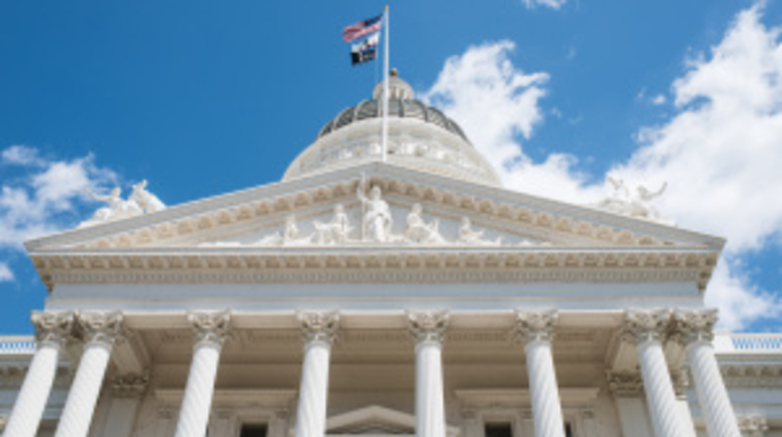2020 Election Results, New Emergency Workplace Standards, and What’s Ahead

Mariko Yoshihara
For many of us, Election “Day” was a week (or more) filled with a lot of anxiety as record-high mail-in ballots caused significant delays in projecting election results. For the campaigns on which CELA took positions this year, we unfortunately did not get the wins we were looking for. Proposition 22, the misguided and misleading campaign led by Uber, Lyft, and Instacart, to strip their workers of employment protections and benefits, won by about 17 percentage points. Despite our best efforts, we simply could not compete with the $200-million, record-breaking spending by the Prop 22 campaign seen on TV ads, paid social media posts, and billboards across the state.
Perhaps more concerning is what this win could signal to other stakeholders and industries in California (and around the country): that an effective strategy for enacting favorable laws is to simply avoid the legislature altogether and throw large amounts of money into a ballot measure instead. The aftermath of Proposition 22 is still unfolding as gig companies like Uber and Lyft are trying once again to evade liability for misclassification in existing cases by arguing that Proposition 22 “dismantles the foundation” for any relief that could be granted to these workers. We can also expect to see many companies try to revise their operations framework in order to fit within the Prop 22 paradigm.
CELA and our members are working together with various labor and worker advocates to strategize around minimizing the impact of Proposition 22. As well, we are strategizing around how best to prepare and confront similar ballot initiative efforts, modelled after Prop 22, to further weaken workers’ rights in California.
Proposition 16, a ballot measure supported by CELA, which would have removed the ban on affirmative action involving race-based or sex-based preferences from the California Constitution, was also defeated with more than 57% of Californians voting No. This, too, was a disappointing loss, because voters failed to overturn a long overdue ban on programs that promote equal opportunity and fairness to our public contracting and employment practices.
And finally, our CELA-endorsed senate candidate, Kipp Mueller came within 6,500 votes (out of nearly 400,000) of flipping a historically Republican district, but ultimately could not get the win. Hopefully, this is not the end of Kipp’s efforts, and even more CELA members will run for office so that we can ensure workplace justice remains a priority in our state legislature.
Given these results, the state legislature will likely take shape with the following make up next year: Assembly comprised of 60 Democrats to 19 Republicans (and 1 independent) and the Senate with 31 Democrats to 9 Republicans.
With the election now behind us, it is time to focus on what’s ahead. In the immediate future, we will be seeing new Cal/OSHA standards going into effect by the end of the month. On November 20th, the Department of Industrial Relations’ (DIR) Occupational Safety and Health Standards Board unanimously adopted emergency temporary standards to protect workers from hazards related to COVID-19. The temporary standards apply to most workers in California not covered by Cal/OSHA’s Aerosol Transmissible Diseases standard and can be found here. Under the new regulations, employers must have a written COVID-19 Prevention Plan that addresses the following:
- System for communicating information to employees about COVID-19 prevention procedures, testing, symptoms and illnesses, including a system for employees to report exposures without fear of retaliation.
- Identification and evaluation of hazards – screening employees for symptoms, identifying workplace conditions and practices that could result in potential exposure.
- Investigating and responding to cases in the workplace – responding immediately to potential exposures by following steps to determine who may have been exposed, providing notice within one business day about potential exposures, and offering testing to workers who may have been exposed.
- Correcting COVID-19 hazards – including correcting unsafe conditions and work practices as well as providing effective training and instruction.
- Physical distancing – implementing procedures to ensure workers stay at least six feet apart from other people if possible.
- Face coverings – providing face coverings and ensuring they are worn.
- Adopting site-specific strategies such as changes to the workplace and work schedules and providing personal protective equipment to reduce exposure to the virus.
- Positive COVID-19 case and illness recording requirements and making the COVID-19 Prevention Plan accessible to employees and employee representatives.
- Removal of COVID-19 exposed workers and COVID-19 positive workers from the workplace with measures to protect pay and benefits.
- Criteria for employees to return to work after recovering from COVID-19.
- Requirements for testing and notifying public health departments of workplace outbreaks (three or more cases in a workplace in a 14-day period) and major outbreaks (20 or more cases within a 30-day period).
- Specific requirements for infection prevention in employer-provided housing and transportation to and from work.
In the coming months, CELA and other allies and advocates will be planning for legislative proposals for the 2021-2022 Legislative Session. The upcoming session most likely will be as unpredictable and challenging as it was this last year, with limits and restrictions on bills and bill hearings. However, we hope to have as much success (and more) at addressing some of the most pressing issues facing workers during these unprecedented times. If you would like to be involved in our legislative planning efforts, please email mariko@cela.org.
